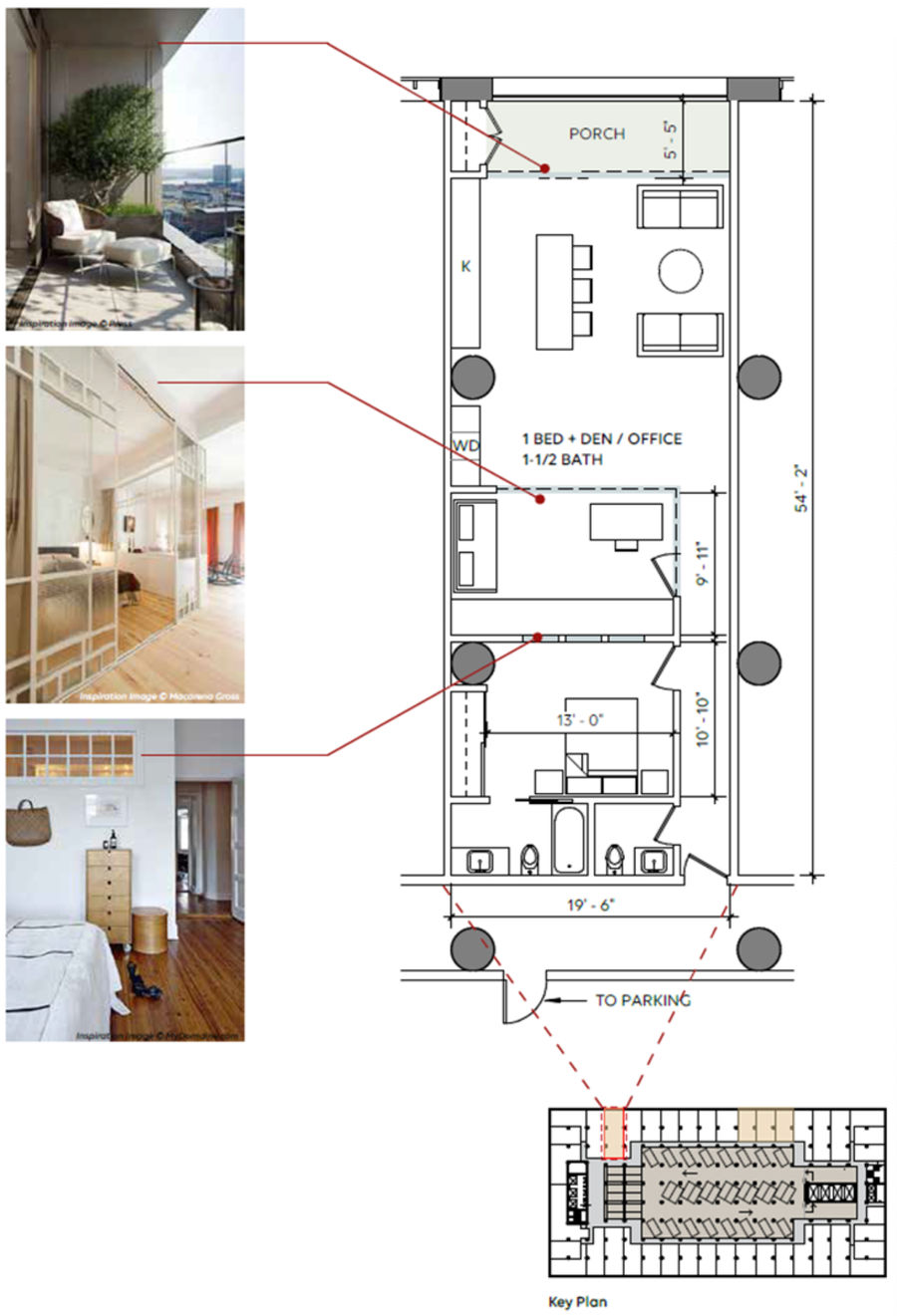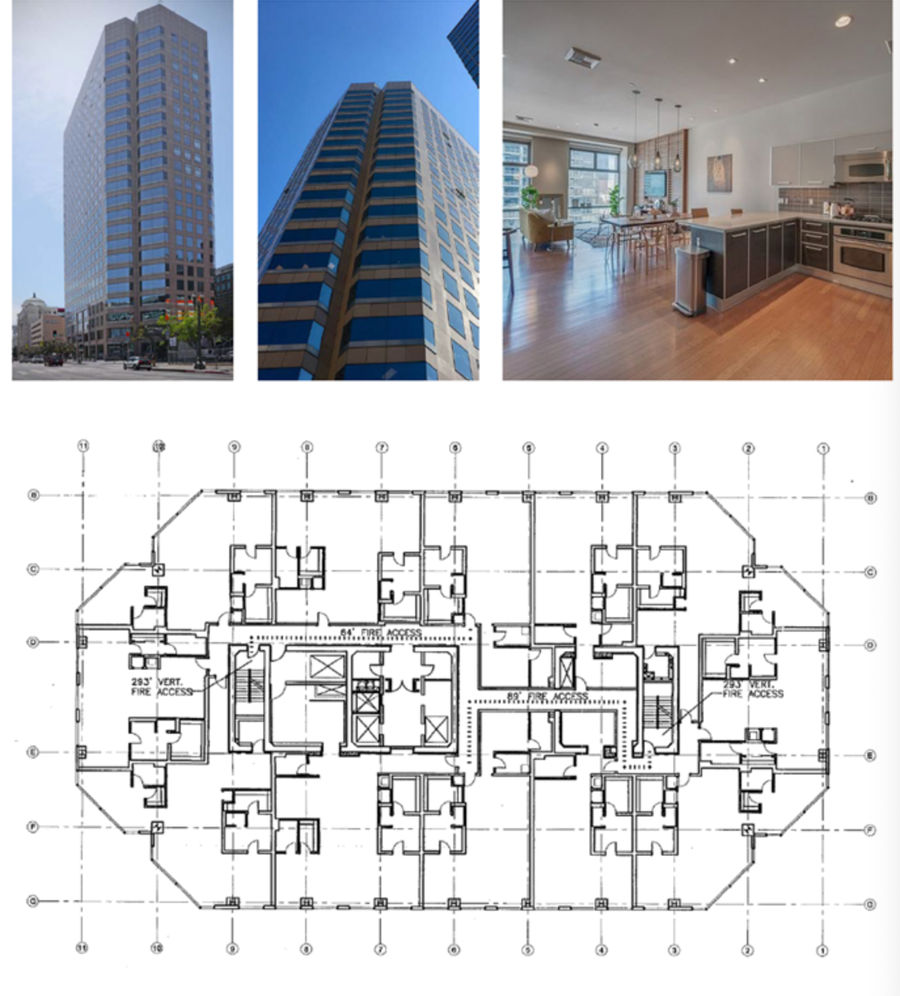Converting Office Space
As compelling an opportunity as converting office space into residential units may be – it is of course easier said than done and involves a complex set of considerations that determine the physical and financial feasibility of any given project. Broadly speaking, these factors fall into the following three categories:
Design Solutions
- Floor Plates: Modern office buildings often have large floor plates, which can be challenging to reconfigure for residential units which require natural light.
- Windows: Residential units typically require operable windows, which many contemporary office buildings do not have.
- Building Systems: Office building systems including HVAC, plumbing, and security are centrally operated, whereas residential units are managed individually.

Deep Floor Plates
"Units that are deep but bring natural light to the interior help address the concern about converting buildings with deep floor plates"
- Adaptive Reuse: Office/Commercial to Residential, OMGIVNING
- Adaptive Reuse: Office/Commercial to Residential, OMGIVNING

Windows
"In 2005. 11 floors of 801 Grand were converted to residential. No new facade was required due to the design of existing windows."
- Union Bank Adaptive Reuse Study, Steinberg Hart
- Union Bank Adaptive Reuse Study, Steinberg Hart
Regulation
- Zoning: City zoning codes may not allow for residential uses in commercial districts.
- Building Codes: Commercial and residential uses are subject to different health and safety requirements.
- Policies: Cities can encourage and facilitate adaptive reuse by enacting policies that eliminate obstacles, reduce requirements, and streamline the process.
Learn More
CCA White Paper: Adaptive Reuse, 2021
“Expanding the potential for adaptive reuse can be a primary recovery strategy to allow buildings and neighborhoods to nimbly respond to rapidly changing circumstances and needs, sustaining economic activity in cities over the long term.”
Terner Center for Housing Innovation, UC Berkeley, Adaptive Reuse Challenges and Opportunities, 2021
“Jurisdictions can support adaptive reuse projects by enacting local ordinances that help to streamline approval processes, reduce parking requirements, and clarify building code requirements. “
Rand Corporation, Can Adaptive Reuse of Commercial Real Estate Address the Housing Crisis in Los Angeles, 2022
“Cities including Chicago, Philadelphia, and New York also have created thousands of units of housing in recent decades through AR conversions of office buildings and industrial spaces.”
Financial
- Conversion Cost: The cost of conversion can range widely and be difficult to project due to uncertainties associated with issues identified above.
- Relative Value: The financial viability of an adaptive reuse project depends on the potential current and future values under the different uses plus the cost of conversion.
- Current Occupancy: Most conversion projects require a building to be vacated, which may entail additional effort, time, and cost.
- Current Financing: The debt associated with a property and the ability to carry that debt through conversion is another critical consideration.